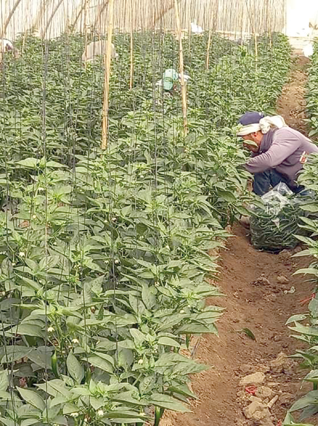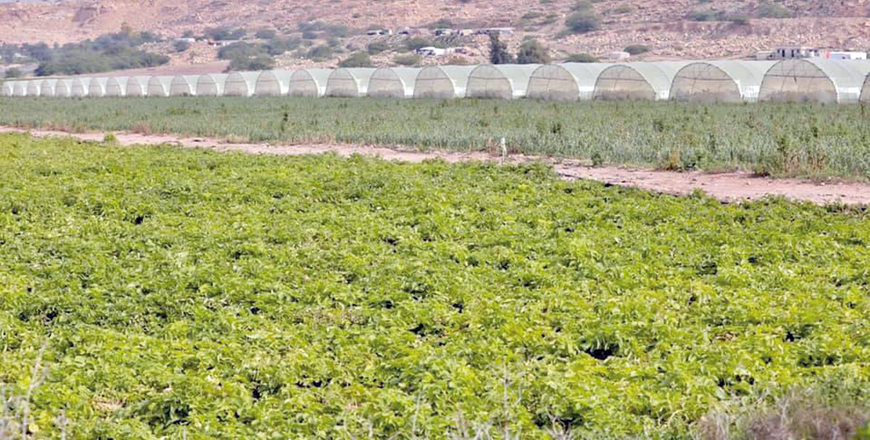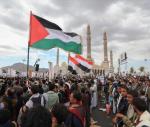You are here
Vegetable production in Jordan Valley drops by 50%
By Mays Ibrahim Mustafa - Nov 01,2022 - Last updated at Nov 01,2022
AMMAN — The mounting challenges faced by the agricultural sector, including changing weather patterns and rising production costs have left many farms in the Jordan Valley empty and uncultivated, decreasing production by 50 per cent, according to farmers and sector representatives.
Ibrahim Al Sharif, a vegetable farmer in the Jordan Valley, noted that most of the vegetables currently entering the market are coming from farms in the Shafa area of Ajloun, some 70km northwest of Amman.
Usually, the weather is much colder during this time of the year in the Shafa. Since the weather is still warm, farms in that area are still productive, according to Sharif.
“I delayed planting tomatoes until November instead of late September and October due to the abundance of production in the Shafa farms. I also planted all other vegetables, such as cucumbers and beans, in quantities 50 per cent less than last year,” he told The Jordan Times.
The production season, which is usually in December, might be affected by delays in many crops, he added.
“The number of empty and unsown lands in the Jordan Valley have definitely risen from last year, because many farmers have either delayed planting their crops until November and December like I did, or they simply gave up due to the scarcity of water and the rising production costs,” he continued.
Farmers in the Jordan Valley have been delaying their cultivation every season for the past four to five years to avoid producing at the same time as the Shafa farms, as that would lead to “disastrous loses”, according to Sharif.
He also pointed out that although there’s a cost to this step, as delaying cultivation does affect the amount of production.
Abd Al Wahhab Abu Shqura, a farmer in the Shafa area, noted that cold weather affects the maturity of most crops in Shafa and halts production.
The cultivation of most crops in that area usually begins in mid-August and lasts until the end of November. Winter crops can be cultivated in December and January, Abu Shqura said.
“It’s a good thing that temperatures are still warm, because continued production is allowing farmers to make up for the many losses they’ve suffered this past year due to rising production costs,” he told The Jordan Times.
Highlighting this point, he added that “there are different types of fertilisers that farmers use for various needs; there’s a type which cost me JD300 to JD400 last year, and this year I bought it for JD1,000”.
Farmers are also dealing with the soaring costs of labour, pesticides, seeds and electricity, which is used to deliver water to farms from wells, Abu Shqura said.
Muath Sleibi, another farmer in the Jordan Valley, noted that he hasn’t delayed his cultivation in an attempt to avoid adversely affecting the quality and quantity of his crop yields.
He also attributed the decrease in production in the Jordan Valley to the declining number of cultivated farms, noting that farmers have suffered from successive losses due to unstable weather conditions and difficult regional circumstances.
Syria was “the main market for exportation from the Jordan Valley. It was also the fastest and cheapest exportation road for Turkish traders, who also brought crops from the Jordan Valley to their country and to Europe,” he told The Jordan Times.
He added that labour costs, which have tripled, are likewise taking a toll on farmers.
Fees to obtain work permits for migrants have risen from JD120 to JD420 this year. In the past three or four years, the cost of the medical examination for foreign employees has gradually risen from JD15 to JD85. The current cost of the social security subscription for these workers, which totals JD50 every year, will increase to JD650 per year in January 2023, he continued.
These skyrocketing costs are problematic, as most farm workers are migrants, and 90 per cent of the small amount of Jordanian farm workers are women who live in the area, according to Sleibi.
Chairman of the Jordan Exporters and Producers Association for Fruits and Vegetables (JEPA) Abdalla Al Zaben noted that rising production costs, the lack of water for irrigation and unstable weather conditions have caused farmers to abandon their profession. Many decided not plant crops this year because they can’t afford any more loses, he added.
Head of the Jordan Valley Farmers Union Adnan Khaddam noted that farmers in the Jordan Valley can only delay cultivation between 10 and 15 days without serious repercussions on production quantities.
“I believe that it’s likely that the production seasons in the Shafa area and the Jordan Valley will overlap for a period of time, causing a temporary decrease in prices, which will increase again when the cold weather begins and stops production in the farms of the Shafa area,” he said.
Related Articles
AMMAN — Farmers are welcoming the late arrival of rain which has affected most regions across the Kingdom, during the past few days. Pr
AMMAN — The government should provide farmers with early-warning frost detection systems instead of advising against planting crops that are
AMMAN — Rising temperatures, combined with the late arrival of rain, are impacting farmers’ crop yields and are causing a significant increa

















